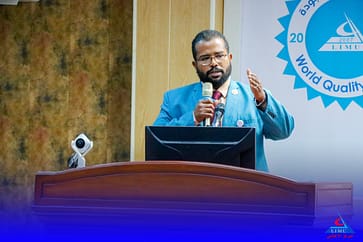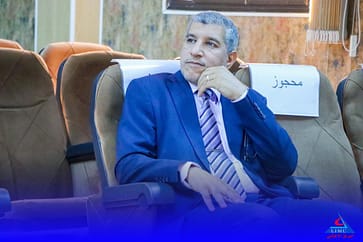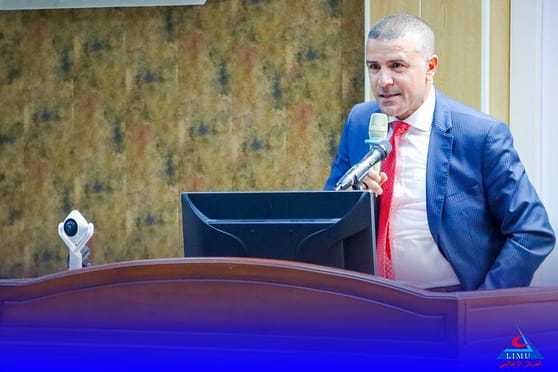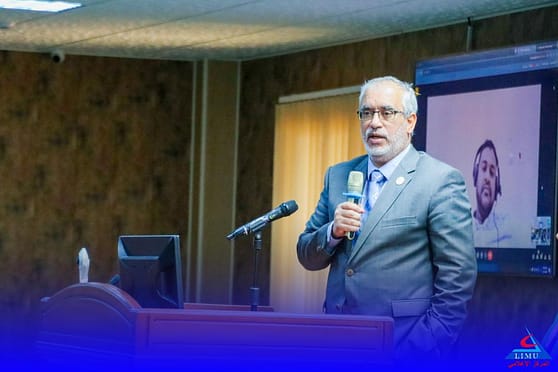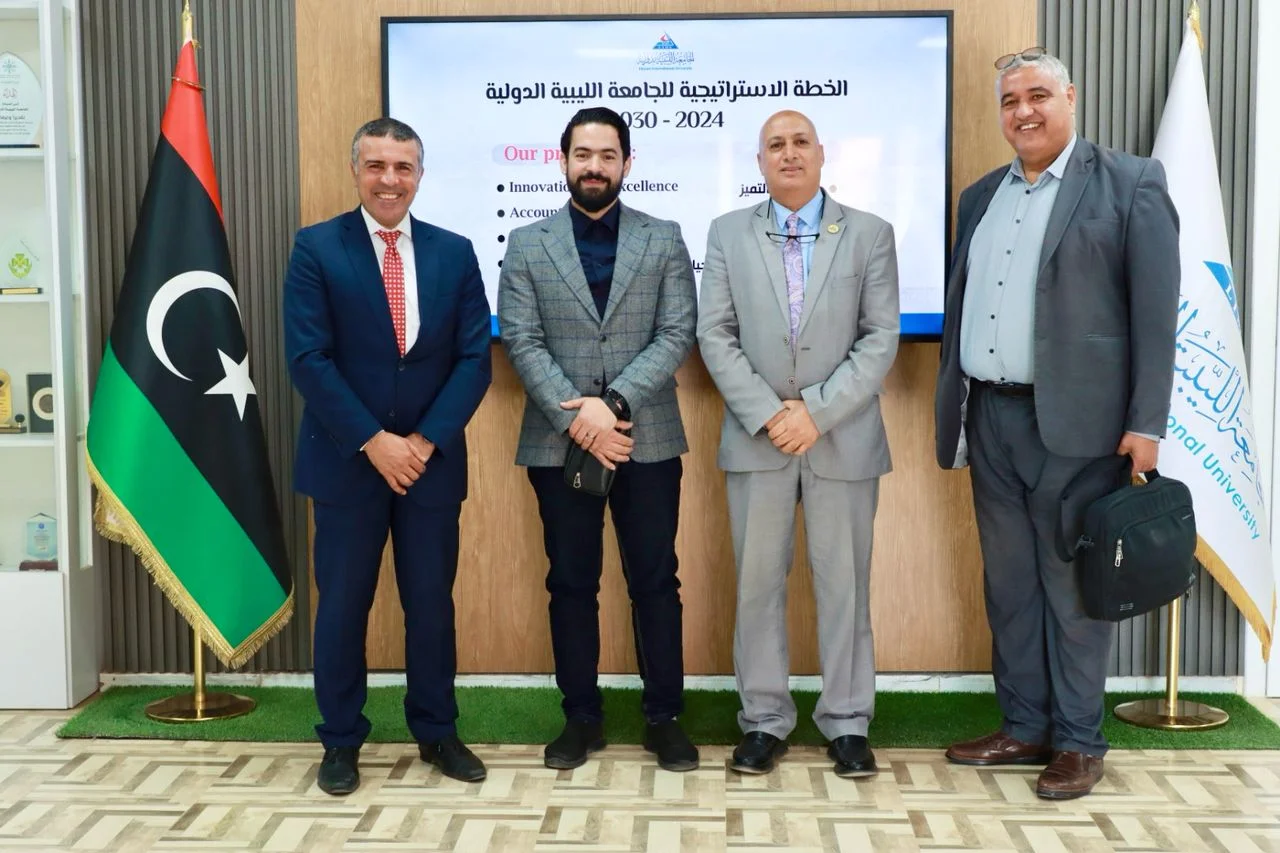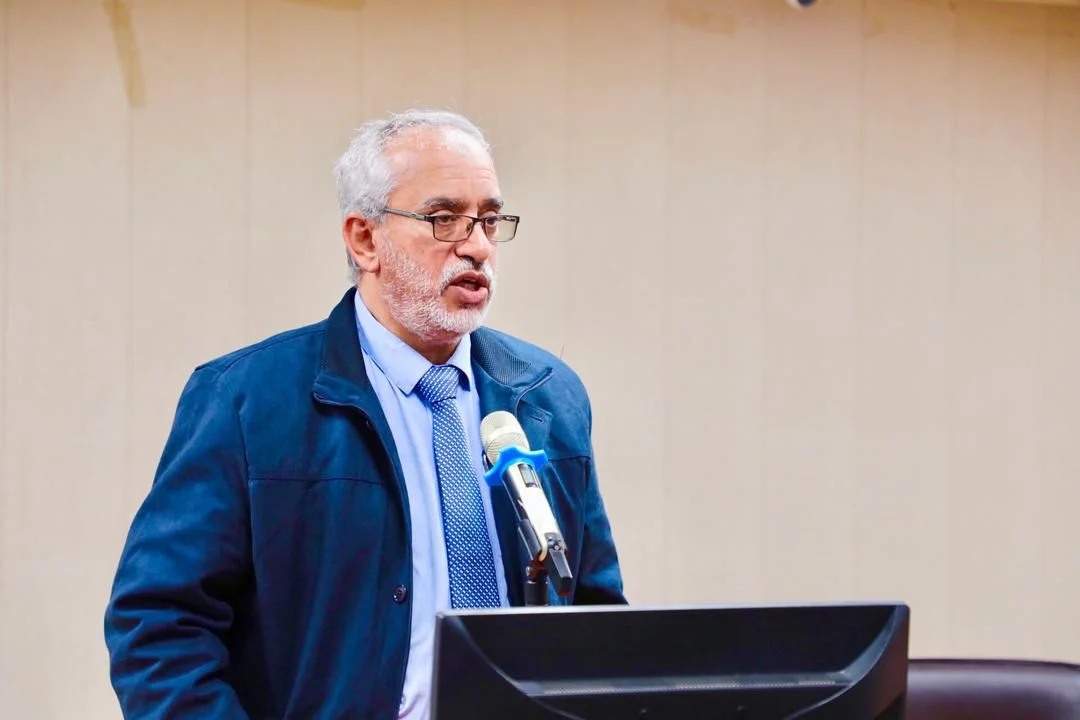Launching the Global Quality Week with International and Local Participation
Reinforcing its established tracks and reaffirming its firm belief in quality as a principle, policy, and implementation since its inception, and LIMU’s pursuit to instill the values of quality in as many people, institutions, and entities as possible, leading to the dissemination of a quality culture to be the address and guide for many segments.
In the presence of the University President, the Director of Private Education, the Director of Quality Management at the International University, the University’s Quality and Governance Advisor, and a number of its leaders, faculty members, students, and distinguished guests, the Global Quality Week kicked off on Saturday, November 11, 2023, in the hall of the Martyr Ahmed Al-Sharif Al-Sanusi, with a scientific symposium entitled “Improving Quality in Higher Education,” presented by two main speakers via Zoom:
Dr. Omar Al-Husseiny, Consultant of Internal Medicine and Medical Education Expert, Iraq, Sultanate of Oman.
Dr. Mohamed Hamza, Professor of Physiology and Medical Education, Qatar University.
From the Libyan International Medical University: Dr. Khabab Abdel Moneim, Quality and Governance Advisor.
In their presentations, the speakers discussed topics related to quality and higher education, including the conditions that must be met when selecting faculty members, quality as a culture, its foundations and contents, and how to disseminate it, followed by a discussion of partners and stakeholders.
The symposium witnessed important interventions from the attendees, which enriched and deepened its content.
The University President had a speech and intervention that focused on explaining that the close relationship between the International University and quality is an ongoing relationship that is being strengthened and developed day by day, to become a behavior, culture, and framework that encompasses all that the International University does, from work, programs, and activities, to the strategies and visions it adopts at all levels. This is evident in the preparation of qualified and capable cadres who have been able to implement unprecedented modern learning methods in Libya, which are in line with the trends of medical education in reputable universities of high standing, as well as the development and adoption of modern curricula, and the establishment of an infrastructure that meets the requirements of quality and the scientific programs that the university implements. The University President pointed to one of the major national titles that it is in the process of implementing, which is in line with the latest practices in international institutions, namely the administrative system (business processes), which is a pillar of the application of contemporary quality and the provision of an innovative administrative structure that responds and aligns with the requirements of quality and its conditions.
LIMU launched the Global Quality Week on Saturday, November 11, 2023, with a scientific symposium entitled “Improving Quality in Higher Education.” The symposium was attended by the University President, the Director of Private Education, the Director of Quality Management, the University’s Quality and Governance Advisor, faculty members, students, and guests.
The symposium featured two keynote speakers from the United States and the United Arab Emirates. The speakers discussed a variety of topics related to quality in higher education, including the importance of selecting qualified faculty members, the role of quality in creating a culture of excellence, and the importance of collaborating with stakeholders.
The University President also spoke at the symposium, emphasizing the University’s commitment to quality. He said that the University is committed to providing students with a high-quality education that prepares them for success in their careers.
The Global Quality Week is an annual event that is organized by LIMU. The week is designed to raise awareness of the importance of quality in higher education.
